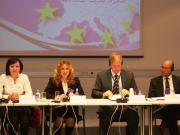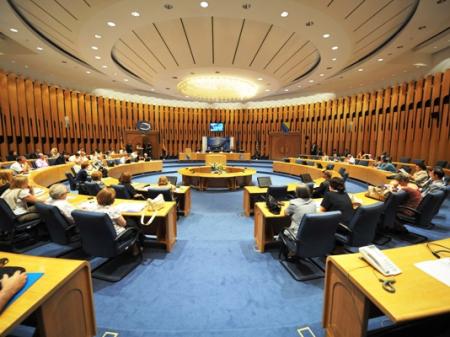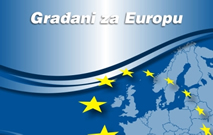Citizens are expecting the authorities to deliver what they promised

The key recommendations of the civil society to the authorities in the energy and environment sector call on the adopting of the Law on protection of environment at the BiH level, making of guidelines for imlementation of the 2010 Social Action Plan for BiH, and establishing of the DNA agency. Citizens also asked for establishment of an Agency for energy efficiency. Representatives of authorities and relevant institutions in principle supported these and other recommendations. However, lack of coordination between entity and state authorities was noted as the biggest obstacle to adopting and implementation of laws. When meeting the Citizens authorities agreed to the proposal that ministries should appoint focal points for cooperation with civil society representatives. Some of the Ministries have already done so, such as the BiH Ministry of Foreign Trade and Economic Relations. Representatives of authorities also informed that establishment of the DNA agency can be expected soon, this being a precondition for implementation of projects from the clear energy fund, resulting in an increased number of investments in this sector.
In the agriculture and rural development sector, the key recommendations made by the Citizens refer to the producing of the BiH national Strategy for rural development, full harmonising and implementation of the BiH Law on agriculture, food and rural development, better coordination between government institutions and civil society organisations. Representatives of relevant ministries at the state and entity level supported the civil society recommendations, and recognised the BiH's backlog in the allocations for agriculture and rural development sector with 5%, while EU allocates more than 40% of its budget to this sector. Representative of the BiH Ministry of Foreign Trade and Economic Relations stated that a Network for rural development will soon be established with members of the civil society, and that a public progress report will be issued, while this the Office for harmonising and coordination of payment system will become fully functional within 6 months MPs in the parliaments called on the ministries to forward to the parliamentary procedure the document containing civil society recommendations.
In the labour and employment sector, Citizens for Europe focused their recommendations on the development of a state-level institutional structure for labour and employment, rationalising and consolidation of the employment service in the Federation BiH, and harmonising of laws in the field of labour and employment between two entities. Further, they emphasised the need for harmonising of contributions rate between entitites, and discontinution of health care administration as part of employment bureaus. The FBiH Parliament's Board for Labour and Employment undertook to focus on these recommendations and to monitor adopting of these recommendations. Further, employment bureaus will cooperate with projects for youth employment, so as to divide active and passive job seekers.
Citizens' for Europe recommendations are based on comprehensive consultations with relevant civil society organisations and experts from all over BiH. The work of the Citizens is based on the recommendations given by citizens and sent in 2010 to political parties. At the time, many political parties demonstrated their committment to fulfllment of citizens' recommendations.
Civil society organisations and the authorities held four public sessions, to exchange opinions and criticism related to the BiH progress in the said sectors. Civil society recommendations are available on the Initiative's official web site – www.gradjanizaeuropu.ba.
During the closing meeting, held in Sarajevo on 19 October, most of some forty attending government officials supported the initiative because it facilitated a quality dialogue between the authorities and the civil society.
In 2011, the „Citizens for Europe“ Initiative was coordinated by VESTA Association, under the auspices of the EUSR and head of EU Delegation in BiH, with the support of Kingdom of Sweden and SIDA, and in cooperation with the BiH Directorate for EU Integration.
Amra Selesković, Coordinator of the Initiative „Citizens for Europe“




